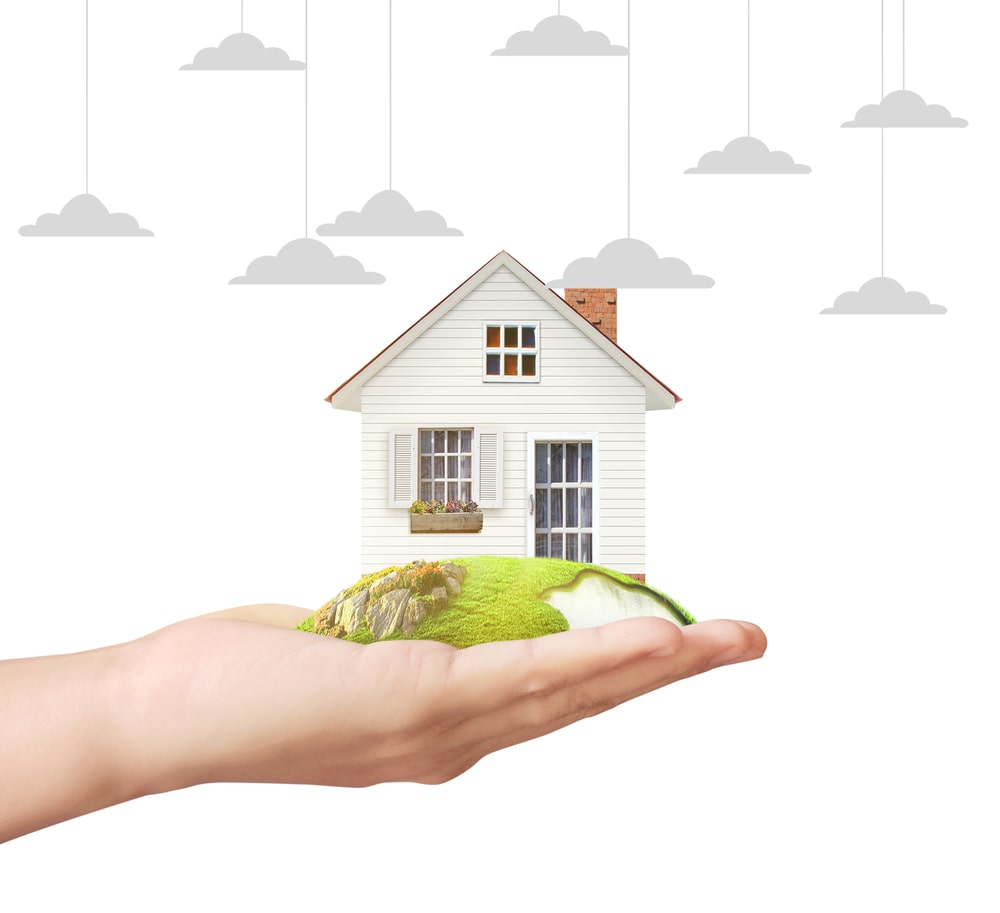
A Home Is An Investment
This post may contain links from our sponsors. We provide you with accurate, reliable information. Learn more about how we make money and select our advertising partners.
To rent or to buy? This is an age-old question.
Find out how your home-buying adventure could end up being a great investment.
* Don't forget, my new course Passive Income By Investing In Syndications is only open for enrollment for 3 more days. Join while you can!
Today’s Classic is republished from The White Coat Investor. You can see the original here. Enjoy!
I hear a lot of people casually throw out the phrase “a home isn’t an investment” or “a home is a terrible investment,” usually citing the fact that the value of a home only increases at a very low rate over the long term, anywhere from 1% nominal to 1% real (after-inflation). In actuality, homes generally depreciate and the land the home sits on generally appreciates. Don’t believe me? What happens to 80 or 100-year-old homes? They get bulldozed and the value of the home instantly goes to zero. That’s called depreciation.
Others argue that a home is more a consumption item than an investment. That argument holds a little more water, although home has one fundamental difference from the boat in the driveway – you actually need a roof over your head. Once you have decided to consume a certain amount of home, it is best to think of it as an investment. Buying a home isn’t always a wise move (residency comes to mind), but you should definitely evaluate the decision from an investment perspective.
A House is Like Any Other Investment
Like any other investment, it has expenses (transaction costs, repairs, maintenance, property taxes, insurance, HOA fees, etc), it has capital gains (appreciation), and dividends (free rent). If it has an accompanying mortgage, leverage can multiply returns, and amortization of the loan adds to your investment return. A good rent vs buy calculator takes all this into account when helping you decide what to do.
I’ve had people argue with me that “free rent” doesn’t count toward your return. That’s silly. A simple example demonstrates why: move out of the house and rent it out. What’s changed? You still have the same expenses, the same amortization, and the same appreciation. Now someone pays you rent. Saved rent is your dividend. From an investment perspective, the only difference between living in your house and renting it out to a tenant is that once you move out you get to claim depreciation on your taxes and you lose the principal residence capital gain exemption.
Over the long run, renting generally costs more than buying. If it didn’t, landlords would all be hemorrhaging money. This is easily demonstrated by looking at how things change over the years.
An Example of Renting vs Buying
You have $125K and want to live in a $500K house that rents for $3000 a month. You have to decide whether to rent or buy.
Year 1
The buyer pays $100K as a downpayment on his 15-year 3% mortgage. He pays $25K in transactional costs. He pays $1K in insurance. $3K in taxes, and $5K in maintenance and repairs. He pays $12K in interest. He saves $36K in rent. The property appreciates $15K (3%). He pays down the mortgage of $21K. He gets a deduction on his taxes of $5K for the interest and taxes.
The renter invests his $125K and makes 5% after taxes on it ($6250). He pays $36K in rent.
At the end of the year, the buyer has $79K. ($100K downpayment + $21K in amortization + $5K in tax breaks + $15K in appreciation – $21K in principal payments – $12K in interest payments – $1K in insurance payments – $3K in taxes – $25K in transaction costs.) The renter has $95,250 ($125K not spent on buying +$6250 in investment gains – $36K in rent.) The buyer is way behind, especially if he wants to sell that year. That would run him about $51K, in which case he comes even further behind the renter. Obviously, it rarely makes sense to buy for a one-year period. What happens the next year?
Year 2+
The buyer pays $1K in insurance, $3K in taxes, $5K in maintenance, $12K in interest and $21K in principal. He gets $21K in amortization, $15K in appreciation, $5K in tax breaks. His total for the year is -1K. The renter pays $37K in rent and his $131,250 gains another $6563. His total for the year is -30K.
The buyer has already made up his shortfall from year one, unless of course, he wants to sell, in which case he’d still be way behind. Within a couple more years, the buyer’s appreciation, amortization, tax benefits, and saved rent have outpaced the round-trip transaction costs as well as the investment returns of the renter.
The deal becomes even better over the years as the home is gradually paid off (dropping interest costs) while comparable rent increases (although to be fair some of the buyer’s expenses also increase, but this is a much smaller sum than comparable rent).
Pitfalls for Homebuyers
So what can go wrong to hose the buyer? There are a few things.
- Expenses could become much higher than planned. New roofs and landscaping don’t come cheap and property taxes can go up.
- The home might not appreciate it. In fact, it could even depreciate. Buying instead of renting can still work out even without significant appreciation, but it takes much, much longer.
- The buyer may not be able to completely deduct the interest and tax payments.
- Saved rent might not be worth much if comparable rent is very inexpensive. Consider a “rent control” city like San Francisco. A home worth $2 Million might rent for only $2-3K. Without significant appreciation, that isn’t going to work out well for a buyer, pretty much ever.
So is buying a home an investment? It has expenses, capital gains, dividends, and a positive expected return over the long run if bought at a reasonable price in relation to comparable rent. That qualifies in my book.
What do you think? In what ways is your home an investment, and in what ways is it a consumption item?
You can find the original post here or hop on over to Passive Income Docs on Facebook to share your thoughts!

Disclaimer: The topic presented in this article is provided as general information and for educational purposes. It is not a substitute for professional advice. Accordingly, before taking action, consult with your team of professionals.

